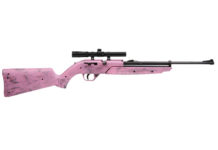A trout has two small nasal pits on either side of the snout ahead of the eyes, from which water circulates. These highly folded tissues inside the nasal pits can contain up to ten million scent-detecting cells leading to trout having a great sense of smell that you can take advantage of.
Trout like scents such as garlic, salt, anise, corn, and cheese. They can smell it from miles away and seek whatever bait has that smell. Olive oil and worm oil seem to work fine as well. Make sure to avoid gasoline, nicotine, and suntan lotion as they work as trout repellent.
Read on to know how to use scents trout like as attractants in your next fishing experience.
What Are Scented Baits?

Scented baits are baits that produce a scent cloud in the water to attract fish. The anglers’ community has been debating about their effectiveness and worth of money and guess what? It has proved extremely effective!
Anglers who use scented baits of any kind tend to get more fish in their net than those who don’t. The competition might be a little heated between scented bait and live bait as they can have quite the same level of effectiveness.
Scented bait works by emitting a cloud of favorable scent to fish in the water then fish do the rest. Fish that have a strong sense of smell can detect the chemicals dissolving in the water from a mile away and try to find them.
The fishing industry has a variety of various scented baits available to buy online, but you can even make your own. Originally, it may be just a soft plastic bait of your choosing masked by some kind of oil or spray that adds the smells of garlic, anise, and salt.
What Scents Do Trout Like?
When the water carrying the aroma molecules flows through the olfactory receptors, a message is sent to the trout’s brain, where the smell is classified as positive or negative. The trout then uses the conditioned reaction to act on the sense.
Oils
Trout are known to have several positive scents. They can strike a bait that’s masked with olive oil, fish oil, and worm oil. The most popular ones are garlic, salt, and anise. They’re tried and tested for years on trout and companies add them to their baits or sell the smell itself.
Artificial Dough Bait
The scent of live bait is also irresistible to trout. However, many streams have regulations prohibiting the use of live bait, so the proper use of artificial bait becomes critical. Berkley powerbait is a manually factored dough substance that comes in a variety of flavors and colors, you can order it on Amazon.
Berkley also makes small Power Nuggets that come in several flavors such as corn, cheese, and garlic. These Power nuggets closely resemble the smell and flavor of the food they consumed when being raised in farm ponds.
Check out my article on the best powerbait for trout to learn more about powerbaits and how to use them for trout fishing.
Human food
Human food like corn and cheese are great when fishing for trout, especially those that were raised in fish farms where they fed on it growing up.
Corn and cheese are on the top of the attractants list. The corn sweetness along with its color makes it appealing to trout. While scents like Velveeta cheese will get trout to bite in no time.
Some of the negative scents are gasoline, suntan lotion, nicotine, and saliva. So before getting your hands in the water where you’re trying to catch trout, make sure it’s clean and odorless not to repel nearby trout.
It’s advised to carry a hand washer and sanitizer on the boat with you to clean your hands before touching the water. If you eat in the boat while fishing, certain foods or sauces will provide a negative smell.
Ready to go trout fishing? Take a minute to check out the best trout fishing lures here. These are my personal recommendations after testing most of the options out there, and these are the ones that have stood the test of time.
What Is The Best Scent For Trout Fishing?
Garlic
When it comes to using scented bait, Garlic is an excellent trout attractant. It’s available, cheap, easy to use, and easy to store. Using just a pinch of garlic to your bait can attract a trout from a mile away. It’ll not just attract trout, but it’ll also make trout hold on to you much longer than they usually do.
You can use all types of bait masked with garlic. You can even use human food with an applied garlic scent on it such as corn and Velveeta cheese. This way is more appealing to farm-raised trout as they’re accustomed to these types of food and garlic will make it more irresistible to them.
You can also use it with live bait. The oil that the worm emits into the water mixed with the garlic scent as an enhancer will rarely fail to get trout on the hook. However, if you spend much time trying this method with no luck, it can be due to how strong the smell is and it’s putting off the trout so it’s important then to try other bait.
Anise Oil
Anise oil is irresistible to most fish let alone a fish with a strong sense of smell like trout. It’s most likely due to the smell being similar to scents found in their natural prey. It works as both attractant and mask, as it attracts trout to your lure while its strong scent will mask any strange scent that your bait has.
Anise oil will stick to your lure and encourage trout to hold on to it much longer as it convinces the fish that the lure is real enough and worth fighting for a little more. Make sure to lightly coat your lures every hour or so of fishing to ensure they stay covered in anise.
Pro-tip: use anise oil as an additional attractant rather than the only attractant for better results.
Almost all bait will work well with anise oil, however, any type of lure that has a non-smooth surface will work great as the surface allows the oil to stay applied to the lure much longer and more effectively. Try anise oil with bucktails, all types of flies, feathered jigs, and streamers.
Salt
Salt is a great fish attractant. It makes the soft plastic softer. Fish tend to hang on to bait longer if it contains salt. Using salt on baits like bucktails, feathered jigs, spoons, spinners, and streamers is effective in drawing trout from a mile away.
Being a freshwater fish, trout instinctively get attracted to salt chemicals. They get ill and can die if they do not have the proper amount of salt in their bodies and organs, so they are always searching for ways to raise their internal salt load.
So, how to use it? Dry your bait and put them in a thick bed of salt (any type will do) and cover it with another thick layer. Make sure the baits aren’t touching and turn them over in the salt after a few hours. Mix a good few tablespoons of table salt with enough warm water to make a thick syrup. Take some of your baits and put them in a sealable bag and then pour in the syrup then seal the bag.
Then, apply enough rock salt flakes to cover the already very sticky, very salted bait, and seal them up overnight. When you check them a day later, you’ll note that the salt has developed heavy-duty gunge around the baits, which is just what you want.
What Is The Best Scent For Lake Trout?
So, what is the best scent for lake trout? The best scent for lake trout can be garlic, anise, cheese, and corn. Most trout are raised in fish farms where they consume these items growing up so they’re familiar with the scent. They’re also drawn to any bait that gives off a sweet aroma and catch it in no time.
Garlic and anise will work any day anytime you choose them as your attractants. While corn and cheese are great when fishing for stocked lake trout that were raised in fish farms where they fed on it growing up. The sweetness of corn, along with its color, makes it attractive to trout. While the smell of Velveeta cheese will entice trout to bite immediately.
Trout Attractant homemade recipes
Garlic and anise oil
- Mix ½ cup of warm water and ½ cup liquid glycerin together in a shallow dish.
- Add 2 tsp. of anise oil to the mixture.
- If you cannot locate the oil, use 4 tsp. of anise extract, however, it may not be as successful.
- Add 2 tbsp. garlic powder to the mixture and give it a quick stir.
- Place the lures in the mixture and give them a quick stir every few hours to ensure that they absorb all of the scents.
- Fill a bottle or thermos with the liquid scent to take to the lake and reapply as needed.
Anise oil and vaseline
- Warm up the vaseline slightly over the stove to get it into liquid form.
- Add several drops of anise extract and let it cool. The vaseline should now have a deep anise scent.
- Dip the lure hooks into the vaseline. On smooth lures, it will hold well and last longer.
What Scents Trout Do Not Like?
Trout do not like scents like gasoline, suntan lotion, nicotine, and saliva. So before getting your hands in the water where you’re trying to catch trout, make sure it’s clean and odorless not to repel nearby trout.
Level Up your Trout Fishing
- Gear up with the best Trout Fishing Rods here
- Check out the best Trout Fishing Reels here
- Find the best fishing lines for Trout here
- Get larger trouts faster with these trout baits that NEVER fail
- Learn about hook sizing for trout here, and the best baits for rainbow trout here.
- You can’t go wrong with these powerbaits for trout.
- Get larger steelheads with these baits
- These Steelhead Lures are the experts’ picks for the year, and it’s easy to see why
Helpful Resources
Trout Fishing Basics
If you like this article, please share it or pin it, you can find the share buttons below. We will really appreciate it ❤️











































